Every Summer Semester, Ecotox Master students do a 2-month internship or AMEO (Applied Module at an External Organization). Today, Hannah Siebert tells us about her AMEO experience at the Research Institute and Natural Museum Frankfurt.
Hi, my name is Hannah Siebert. I did my AMEO in the River Ecosystem Management during the summer of 2024 at the Department of River Ecology & Conservation of the Senckenberg Research Institute and Natural Museum Frankfurt/M, (location Gelnhausen). The Frankfurt Research Institute is one of seven research institutes distributed throughout Germany that are part of the Senckenberg Society, which itself is part of the Leibniz Association. Although it is part of the Research Institute in Frankfurt, the Department of River Ecology & Conservation is located 45 minutes outside of Frankfurt, in the small town of Gelnhausen in the Rhine-Main area.
The River Ecosystem Management section focuses its research on the effects of multiple stressors on freshwater ecosystems with a special interest in benthic invertebrates. Most of the time of my 11-week-long internship I worked on a project called PSM-Biodiv – Event-based recording and evaluation of diffuse pesticide inputs for biodiversity loss in Hessian watercourses, where we collected event-based water samples taken by automatic sampling devices.
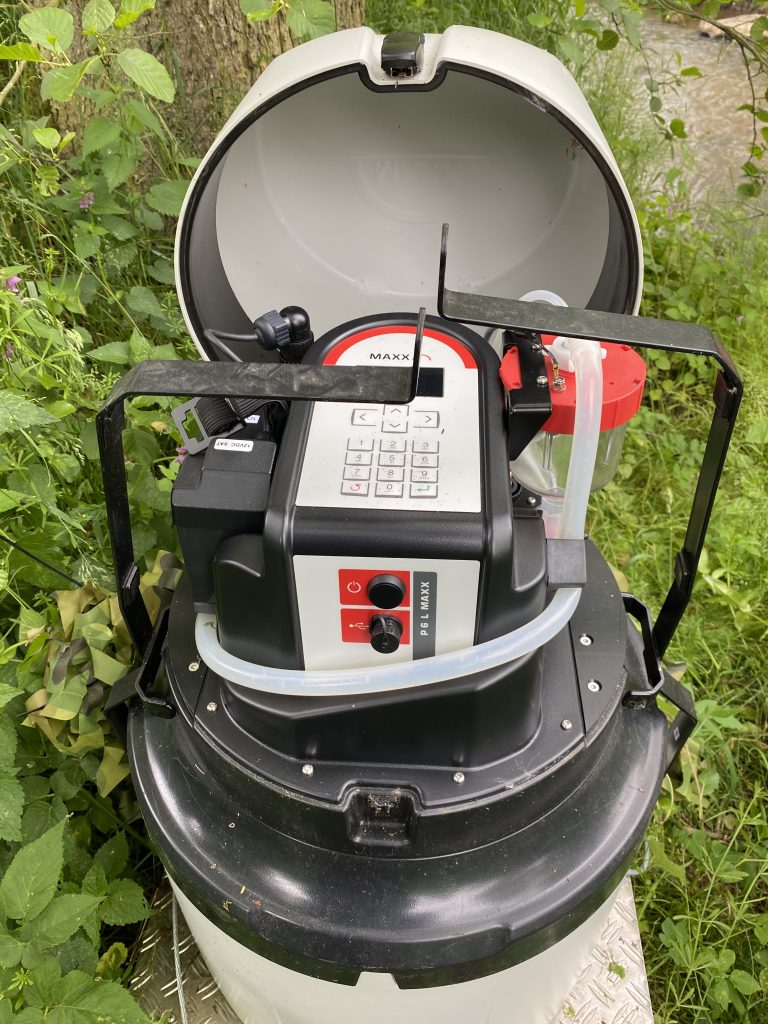
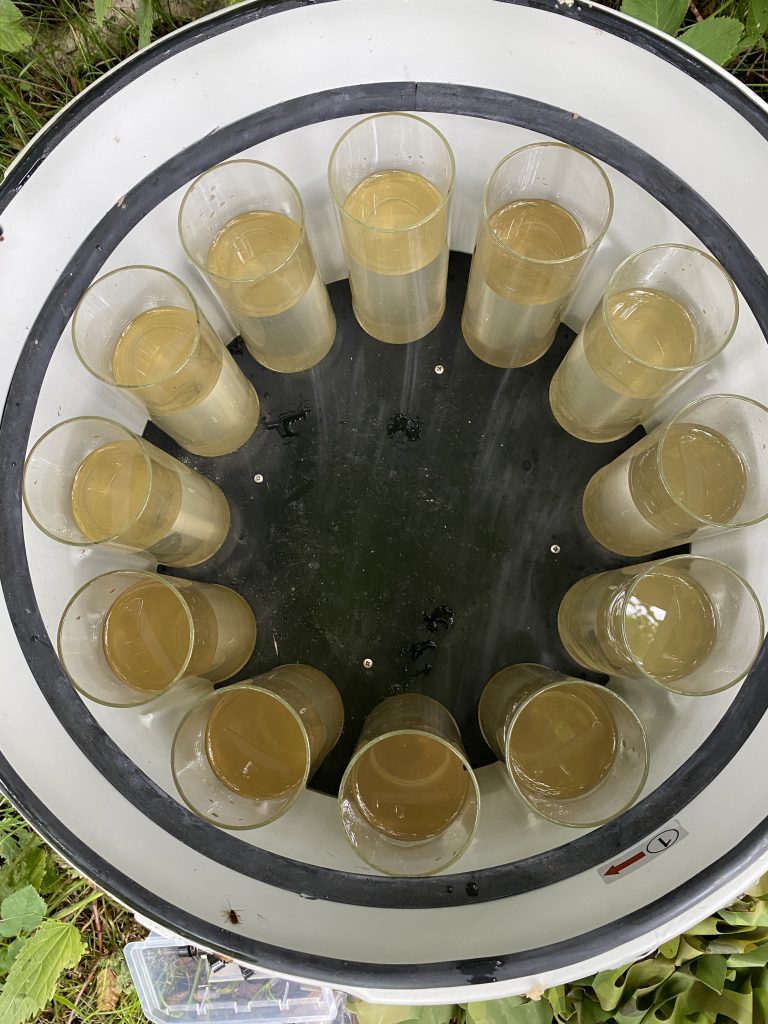
Additionally, control samples were taken during dry weather periods. All water samples were processed in the lab and sent off for measurements to an external lab. In addition, I participated in the sorting and identification of macroinvertebrate samples that were taken according to the AQEM method earlier that year. Another part of my internship was the compilation of water chemistry data sets and the evaluation of these according to scientific questions relating to this project. Therefore, I was granted access to datasets combining several projects and long-term monitoring operations, enabling me to improve my skills in data management and analysis. During which, my colleagues always lent me a helping hand and answered my questions in case I didn’t know how to proceed.
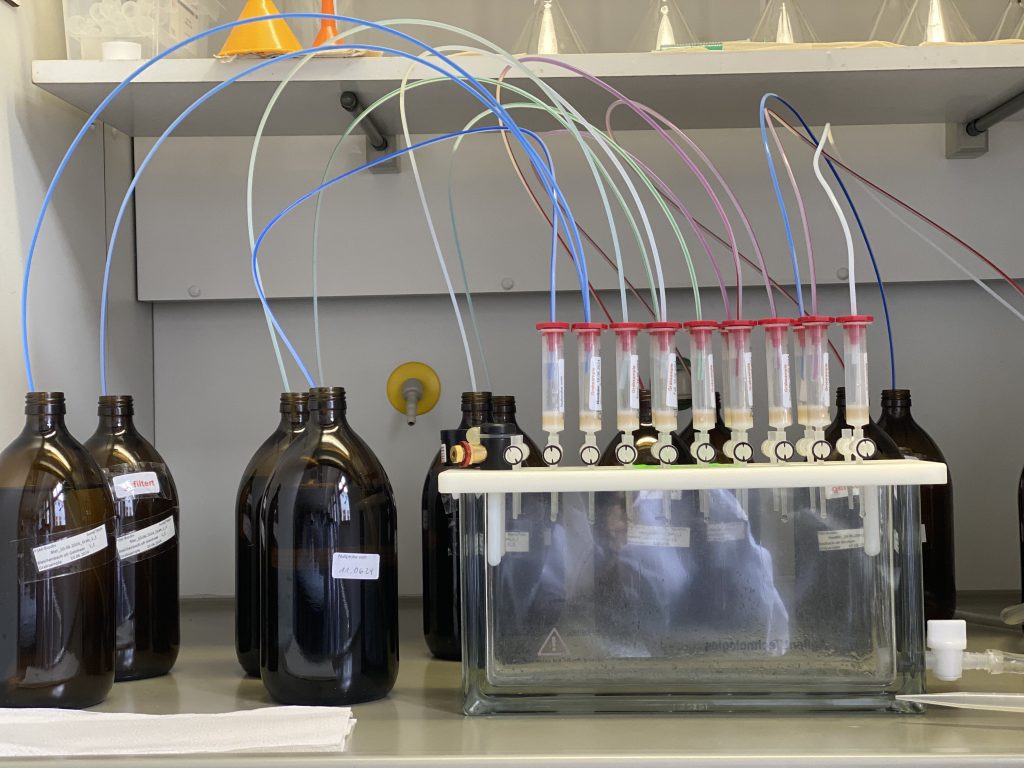
Apart from my diverse day-to-day tasks, there were several special occasions and tasks I was allowed to take part in. One of those was the participation in the Senckenberg convention, which is a yearly (voluntary) meeting of all employees of the Senckenberg society which is being used to connect the different research institutes. Other specials of my internship were the open house presentation, where I was involved in preparation and execution, as well as the “Hessentag”, where I helped sampling living macroinvertebrates that were later shown to the visitors. When all of my daily tasks in the project where fulfilled, I also took part in other projects, which mostly meant driving into the fields to either take water samples, empty malaise traps or check camera traps and audio recorders.
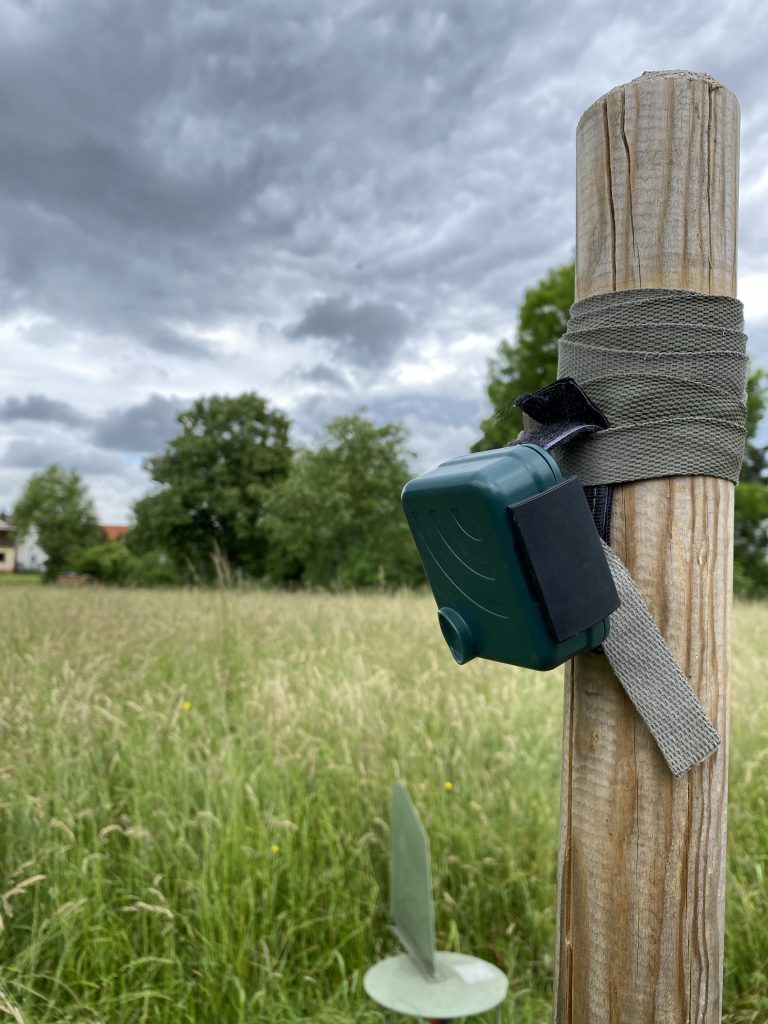
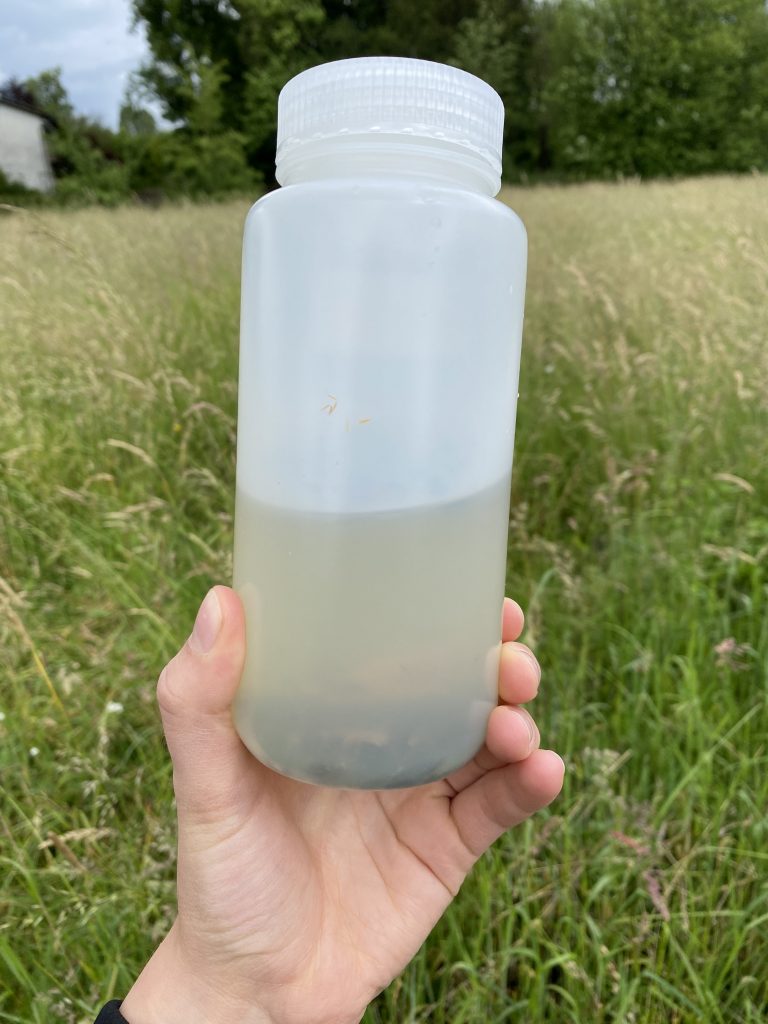
Overall, my internship was characterized by the intensive support of a project as well as the execution of the various tasks that arose during and outside of the project. I especially enjoyed the variety of tasks I was entrusted with, as well as the actual involvement in the project by taking on important tasks on my own. In addition, I was positively surprised by the open and helpful interpersonal nature of the working group. Whenever I did not know how to proceed further, I would always find somebody to answer my questions and help me. In the end, this even led to me prolonging my originally eight-week-long internship by three additional weeks.
Summed up I can only recommend an internship at the Senckenberg Society, especially in the section of River Ecosystem Management for every interested in learning more about pesticide monitoring projects, with all that comes with it from fieldwork to statistical analysis. However not being paid, there is the opportunity of free accommodation, as the department in Gelnhausen has several private and group rooms where the FÖJ’s (voluntary ecological year) and other interns can live.
